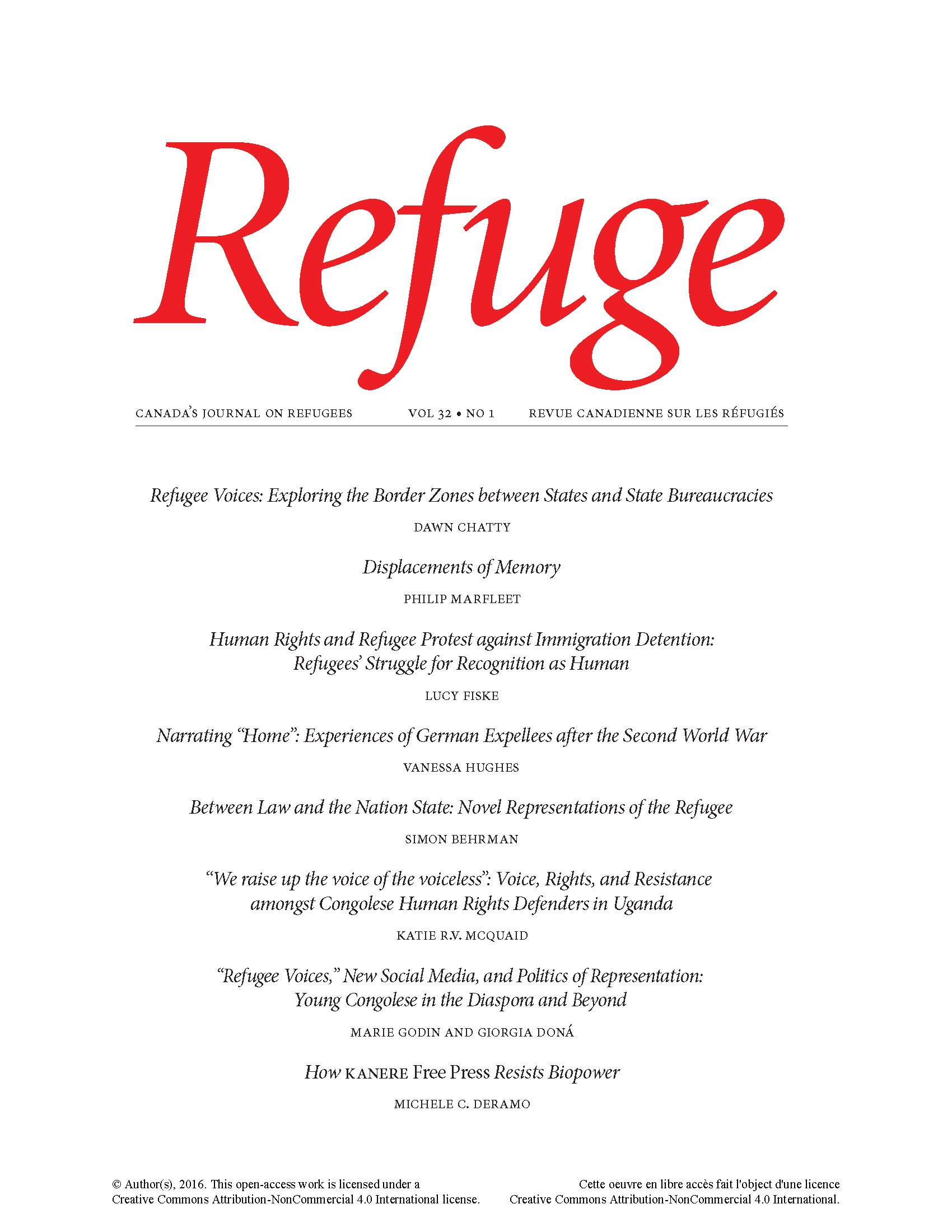How KANERE Free Press Resists Biopower
DOI:
https://doi.org/10.25071/1920-7336.40385Keywords:
Kenya, Kakuma Refugee Camp, free press, biopower, refugee voices, journalism, resistance, lived experiencesAbstract
How does a free press resist state biopower? This article studies the development and dissemination of KANERE Free Press, a refugee-run news source operating in the Kakuma Refugee Camp, that was founded to create “a more open society in refugee camps and to develop a platform for fair public debate on refugee affairs” (KANERE Vision Statement). The analysis of KANERE and its impact on the political subjectivity of refugees living in Kakuma is framed by Foucault’s theory of biopower, the state-sanctioned right to “make live or let die” in its management of human populations. The author demonstrates the force relations between KANERE, its host country of Kenya, and the UNHCR through two ongoing stories covered by KANERE: the broad rejection of the MixMe nutritional supplement and the expressed disdain for the camp’s World Refugees Day celebration. Using ethnographic and decolonizing methodologies, the author privileges the voices and perspectives of the KANERE editors and the Kakuma residents they interviewed in order to provide a ground-level view of refugee’s lived experiences in Kakuma. As KANERE records refugees’ experiences of life in the camp, they construct a narrative community that is simultaneously produced by and resistant to the regulations and control of camp administration and state sovereignty. In doing so, KANERE creates a transgressive space that reaches beyond the confines of the camp.
Metrics
Downloads
Published
How to Cite
Issue
Section
License
Copyright (c) 2016 Michele C. Deramo

This work is licensed under a Creative Commons Attribution-NonCommercial 4.0 International License.
Refuge authors retain the copyright over their work, and license it to the general public under the Creative Commons Attribution-Non Commercial License International (CC BY-NC 4.0). This license allows for non-commercial use, reproduction and adaption of the material in any medium or format, with proper attribution. For general information on Creative Commons licences, visit the Creative Commons site. For the CC BY-NC 4.0 license, review the human readable summary.







